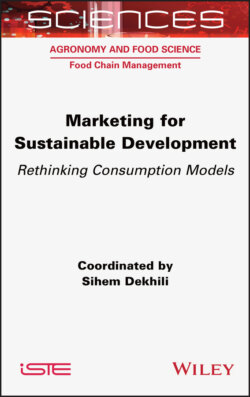Читать книгу Marketing for Sustainable Development - Группа авторов - Страница 16
1.1. Introduction
ОглавлениеThe increase of ecological and social concerns in recent decades, calling for radical changes to modes of production and consumption, shows the signs of a societal model that is flagging. This model, long propped up by sales techniques that encouraged over-consumption and the unbridled pursuit of possessions and material comforts, is, now more than ever, being called upon to reorient itself around a fairer sustainable balance between people, the environment and the economy.
There has been criticism of marketing since the early 1970s (Kassarjian 1971), highlighting its shortcomings and side effects, namely, the harmful incitement to buy, the creation of superficial needs and the devastating exploitation of natural resources. This then developed with time around major concepts, such as “sustainable development” (Nader et al. 1971), the “social responsibility of companies” (Manrai et al. 1997), consumer opposition (Penãloza and Price 1993) and even theoretical frameworks, such as Transformative Consumer Research (TCR) (Mick et al. 2012). The latter supports results-based marketing research on major social issues (health, poverty, the environment, etc.), the results of which are intended to improve individual and collective well-being. All of these changes reflect the gradual dissemination of contestation behavior and discourse to a wider section of the population.
This phenomenon is evidence of the normalization of these opposition practices (Amine and Gicquel 2011) and translates into an inclination among consumers to make their behaviors more disciplined, so as to bring about societal changes. In that regard, it is clear that socio-environmental concerns are preeminent, as expressed through the protest-based reactions1 of consumers (Dubuisson-Quellier 2009). These dissenting movements have given rise to a specific form of opposition of a socially responsible nature (Benhallam 2016) 2, and spark recovery attempts from companies who perceive them as a threat.
With this in mind, and in view of the digitalization of social interactions and the increased speed of virtual exchanges (Kozinets 2012), we propose to explore practices of resistance, particularly those organized by consumer groups online, especially on social networks, given their significant impact.
As an example, following price increases, a boycott campaign against Danone, launched online, took place in North Africa in 2018 and cost the brand 178 million euros3. The main lessons that we want to highlight are intended to underline the ability of pressure from consumer movements to force companies to reevaluate their marketing practices and to push the public authorities and associations to rethink the regulatory mechanisms of the markets.
More specifically, we will be working on answering the following two-part question: “How does the online resistance of individuals adhering to a responsible consumption approach express itself in the face of market ideology? And which possibilities for social development does it open up?” In order to do this, a two-year netnographic study was conducted in three virtual communities based around responsible social opposition, specifically, “Le changement par la consommation [Change through consumption]”, “Mr Mondialisation [Mr. Globalization]” and “Objecteurs de croissance [Growth Objectors]”.
